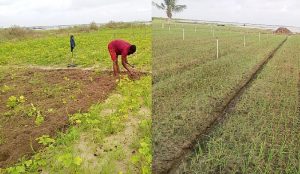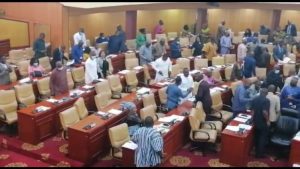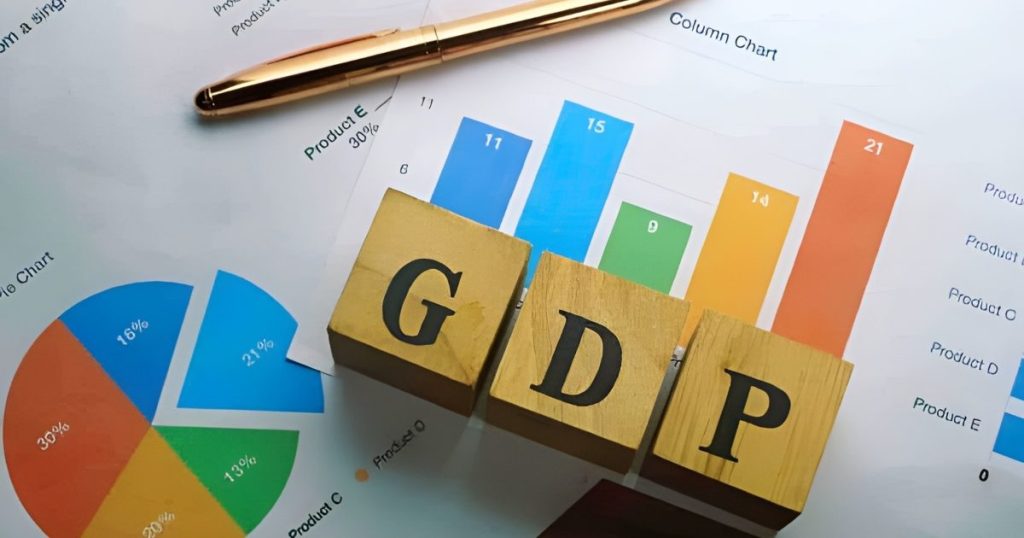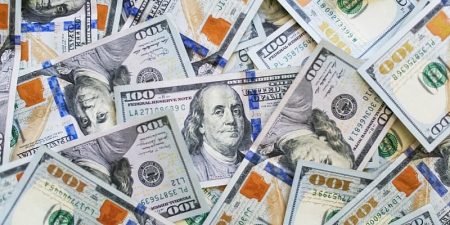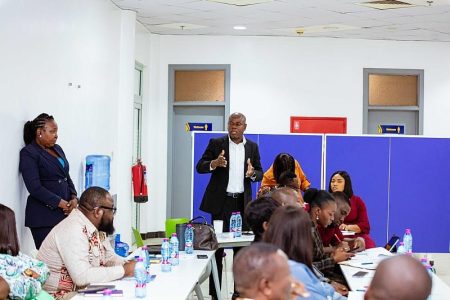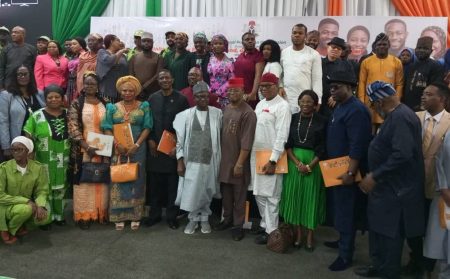Nigeria’s Economic Performance in Q1 2025: A Positive Trajectory Amidst Challenges
Nigeria’s economy exhibited resilience in the first quarter of 2025, with a real GDP growth rate of 3.13% year-on-year. This positive trajectory, surpassing the 2.27% recorded in the corresponding period of 2024, signifies a gradual strengthening of economic activities across various sectors. The rebasing of the national accounts to the 2019 base year provides a more accurate representation of the economy’s structure and size, revealing a nominal GDP of N94.05 trillion in Q1 2025, a significant increase from N79.51 trillion in the same period of the previous year. The updated framework aligns Nigeria with international best practices and reflects the evolving economic landscape. This growth, coupled with the rebasing exercise, has been welcomed by the private sector and economists, who express optimism about sustained economic progress.
The services sector continued its dominance, contributing 57.50% to the real GDP and growing by 4.33% year-on-year. Telecommunications and Information Services, along with Financial and Insurance activities, demonstrated robust growth, driven by digital adoption and improved operational efficiency. Trade, real estate, and transportation also contributed positively to the overall growth, with real estate showing substantial expansion. The transportation sector experienced significant growth across all sub-sectors, indicating improved infrastructure and logistics. These positive developments across diverse service sectors signify the increasing strength and diversification of the Nigerian economy.
The industrial sector also witnessed growth, expanding by 3.42% compared to 2.35% in Q1 2024. While oil production increased, the sector’s real growth moderated due to global market dynamics. Manufacturing displayed positive growth, propelled by the food, beverage and tobacco, chemical and pharmaceutical products, and cement sub-sectors. The construction sector maintained a strong growth trajectory, fueled by investments in infrastructure and private real estate development. This performance reflects continued efforts to diversify the economy beyond oil and gas, with manufacturing and construction playing increasingly important roles.
The agricultural sector, however, experienced subdued growth with a marginal 0.07% increase, although this represents a recovery from the contraction experienced in the same period of the previous year. Crop production, the mainstay of the sector, showed positive growth, while other sub-sectors like livestock, forestry, and fishing delivered mixed results. Insecurity in farming regions and limited mechanization continued to pose challenges to the sector’s overall performance. This underscores the need for continued investments and policy interventions to enhance agricultural productivity and address the sector’s vulnerabilities.
Several smaller sectors demonstrated remarkable growth during the quarter. Electricity, gas, steam, and air conditioning supply, along with water supply, sewerage, waste management, and remediation activities, experienced double-digit growth, reflecting improvements in infrastructure and service delivery. The arts, entertainment, and recreation sector, as well as accommodation and food services, also exhibited positive growth, contributing to the overall diversification of the economy. These growth areas highlight the potential of various sectors beyond the traditional drivers of the Nigerian economy.
The rebasing exercise, spearheaded by the Statistician-General of the Federation, involved a comprehensive data collection and analysis process, incorporating previously excluded components and utilizing advanced methodological tools. This resulted in a more accurate representation of the informal sector’s contribution to the economy, highlighting its significant role. While the rebasing provides a clearer picture of Nigeria’s economic landscape, challenges remain, particularly in obtaining reliable and timely data from various sources. Continued efforts to improve data collection and collaboration among stakeholders are crucial for further refining the understanding of Nigeria’s economic performance. The analysis of the rebased figures by experts suggests that the updated estimates offer a more realistic view of the economy’s size and structure, potentially leading to an improvement in Nigeria’s global GDP ranking. Despite the positive growth observed, experts emphasize the need for policy measures to address persistent challenges facing small businesses and households, ensuring inclusive and sustainable economic development.


